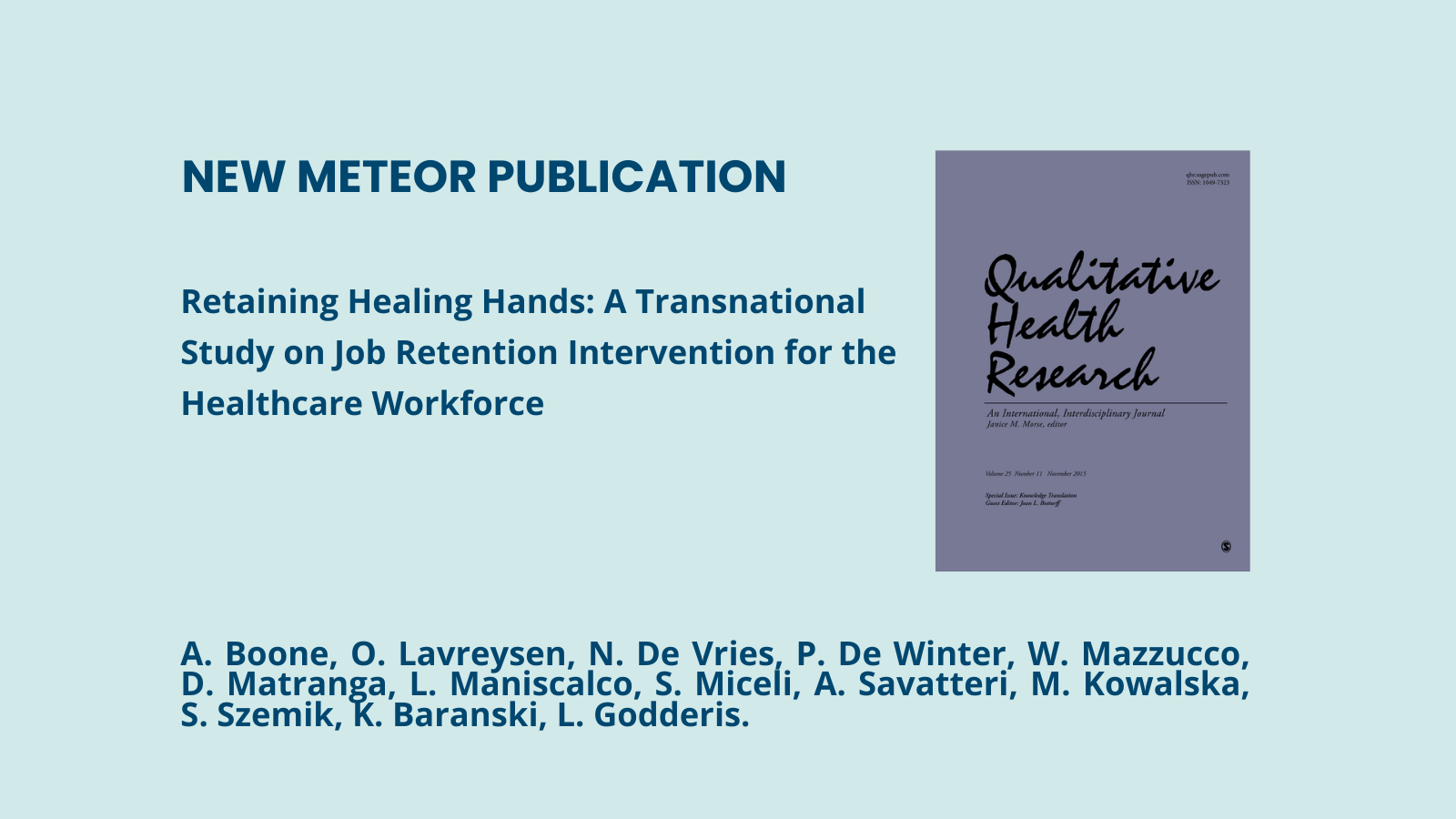To prevent nurses and doctors from leaving their jobs, healthcare managers in Europe should improve working conditions and introduce various incentives in four areas: professional support, education, finance, and legislation, a study from the EU-funded Project METEOR has found.
In the article “Retaining Healing Hands: A Transnational Study on Job Retention Interventions for the Healthcare Workforce,” recently published in the journal Qualitative Health Research, METEOR researchers show that among those four areas, professional and personal support mechanisms are key.
Project METEOR conducted a series of co-creation workshops and Delphi sessions surveying staff at eight European hospitals in four countries: Belgium, the Netherlands, Italy and Poland. Interviewees in all four countries emphasised the importance of leadership training, interdisciplinary teamwork, and support for the non-clinical workload as key factors that could improve their working conditions.
Healthcare organisations worldwide are grappling with mounting challenges in retaining their workforce. The World Health Organization estimates that the European region currently faces a deficit of 1.8 million health workers, projected to double to 4 million by 2030 if no corrective action is taken. Earlier METEOR findings have revealed that 9% of doctors and nearly 14% of nurses intend to leave their professions, citing low job satisfaction, growing depersonalisation, and emotional exhaustion as primary factors.
“In our workshops, healthcare professionals told us that personal support is key to enhancing job satisfaction,” said Anke Boone, a researcher at the Centre for Environment and Health, KU Leuven and a co-author of the METEOR study. “It also creates resilience against workplace stressors, mainly by knitting teams together more strongly.”
In the area of education, interviewees from all countries stressed the need for continuous professional development opportunities, including onboarding and mentorship programs. Participants also advocated for a hospital-based development budget, allocated to each employee, as part of a comprehensive personal development plan.
Financial measures pointed out by nurses and physicians encompassed competitive salaries, adequate spending on infrastructure, and additional benefits such as transport options and secure employment contracts. While salary competitiveness was particularly highlighted in Italy and Poland, participants also stressed a broader spectrum of needs, including equitable compensation for irregular schedules.
“Many healthcare professionals say they’re willing to take a pay cut if it would mean an improvement in their current working conditions,” said Olivia Lavreysen, a researcher at the Centre for Environment and Health, KU Leuven and a co-author of the METEOR study. “That clearly shows that job quality and the level of support from healthcare organisations is more important than money.”
Researchers also found that regulatory interventions can have a positive impact. Interviewees advocated for clear worker-to-patient ratios, effective workload monitoring tools, and harmonised legislation spanning local, national, and international levels. These measures would alleviate workload pressures and ensure sustainable staffing levels, crucial for mitigating burnout and fostering professional satisfaction.
“While there is a lot of consistency between countries in regard to what areas need improvement, there’s no one-size-fits-all solution to healthcare workforce retention,” said Lode Godderis, professor at the Centre for Environment and Health, KU Leuven. “Healthcare providers need to look closely into their organisations and listen to employees to address their needs.”
Boone A, Lavreysen O, De Vries N, et al. Retaining Healing Hands: A Transnational Study on Job Retention Interventions for the Healthcare Workforce. Qualitative Health Research. 2024;0(0). https://doi.org/10.1177/10497323241254253



